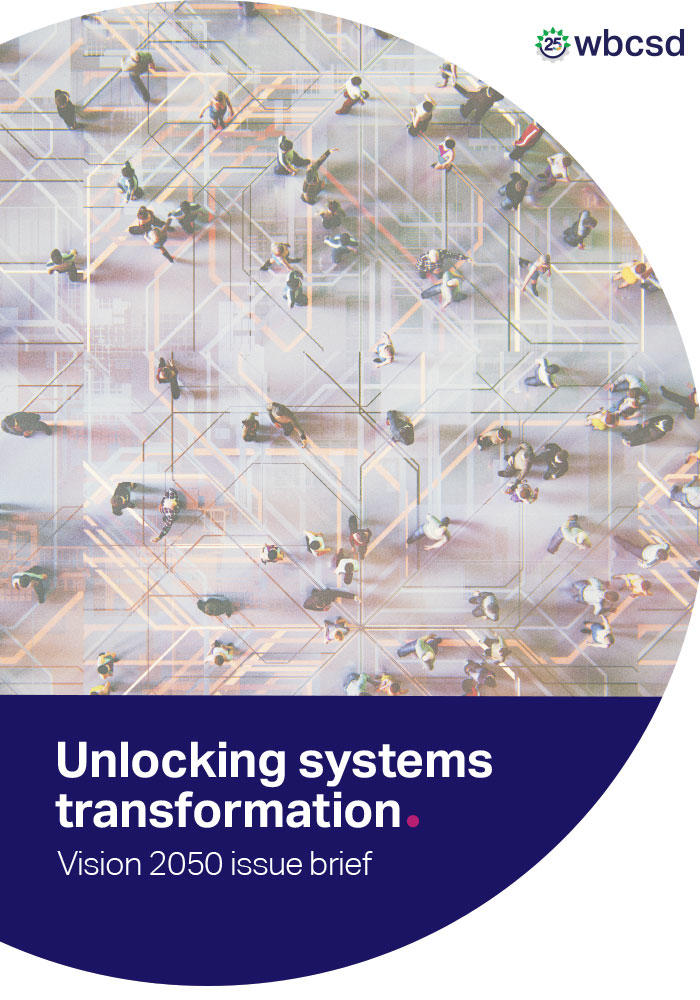
In 2010, the World Business Council for Sustainable Development (WBCSD) released Vision 2050, a landmark piece of work that laid out a pathway to a world in which nine billion people are able to live well, within planetary boundaries, by mid-century.
Vision 2050 declared that business-as-usual was not sustainable. Recognizing that business cannot succeed in societies that fail, it explored what a sustainable world would look like by mid-century, how such a world could be realized, and the role that business has to play in making that vision a reality.
It also identified that delivering this vision would require the extensive transformation of societies’ systems of consumption and production, as well as the way economies value the natural and social systems on which they are built. It predicted that the approach to this “transformation time” would be turbulent, but that by 2020, the turbulence would recede, and more consistent knowledge, behavior and solutions would take hold as consensus in support of sustainable development grew.
At the start of 2020, it was already clear that this prediction was overly optimistic and that a path to bringing about transformation at the rate or scale required to deliver upon our Vision was not yet in sight. Since then, the world has experienced a series of extreme disruptions as the spread and impacts of the COVID-19 pandemic have rapidly escalated.
Like all crises, the COVID-19 pandemic will result in change. It has already revealed how quickly and decisively governments, business and society can act when an emergency is perceived to be real. While our short-term focus is rightly on how to minimize loss of life and mitigate the impact on health, wellbeing and people’s livelihoods, our long-term response to this crisis represents a real opportunity to accelerate the emergence of systemic transformations with exponentially positive consequences for people and planet; the transformations that sit at the heart of our work on Vision 2050.
There is often talk of systems being “broken”. But one can also argue that systems are perfectly optimized, often over many years, to deliver the outcomes that we are currently incentivizing. Either way, the question is how can we reconfigure systems to deliver outcomes that are in support of our Vision 2050: more than nine billion people, living well, within planetary boundaries?
In this paper, we lay out a common framework and vocabulary we can all use to engage around our Vision. This involves answering three questions:
- What is a system?
- What is systems transformation?
- How does systems transformation happen?
We also explore what it takes to foster and accelerate systems transformation, and what role business has to play. The concepts of systems and systems change have long academic histories and are now widely used in many different domains, from ecological to societal to organizational change. Rather than return to first principles, our approach has been to tap into current thought leadership on the subject, mainly in the context of sustainable development, through a literature review and expert interviews. This paper attempts to synthesize a variety of perspectives for a business audience.

